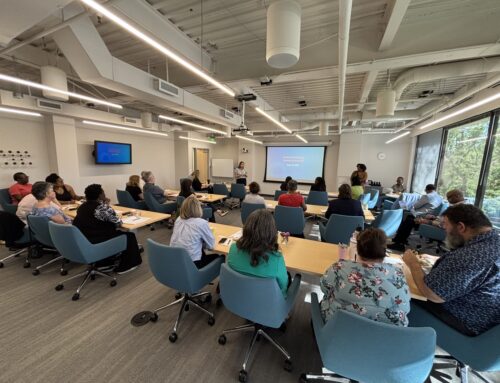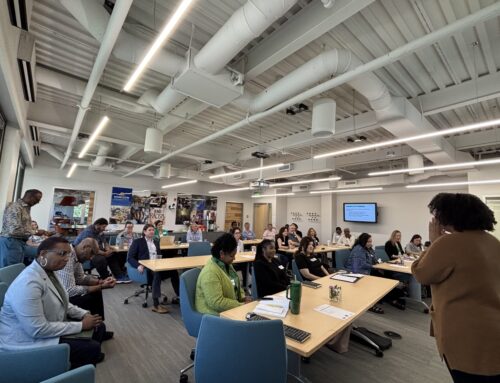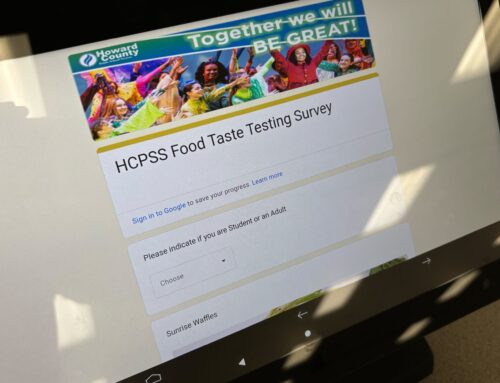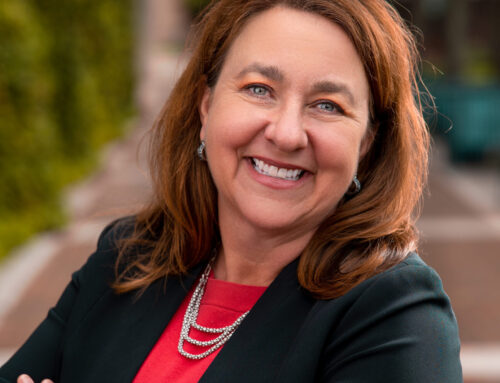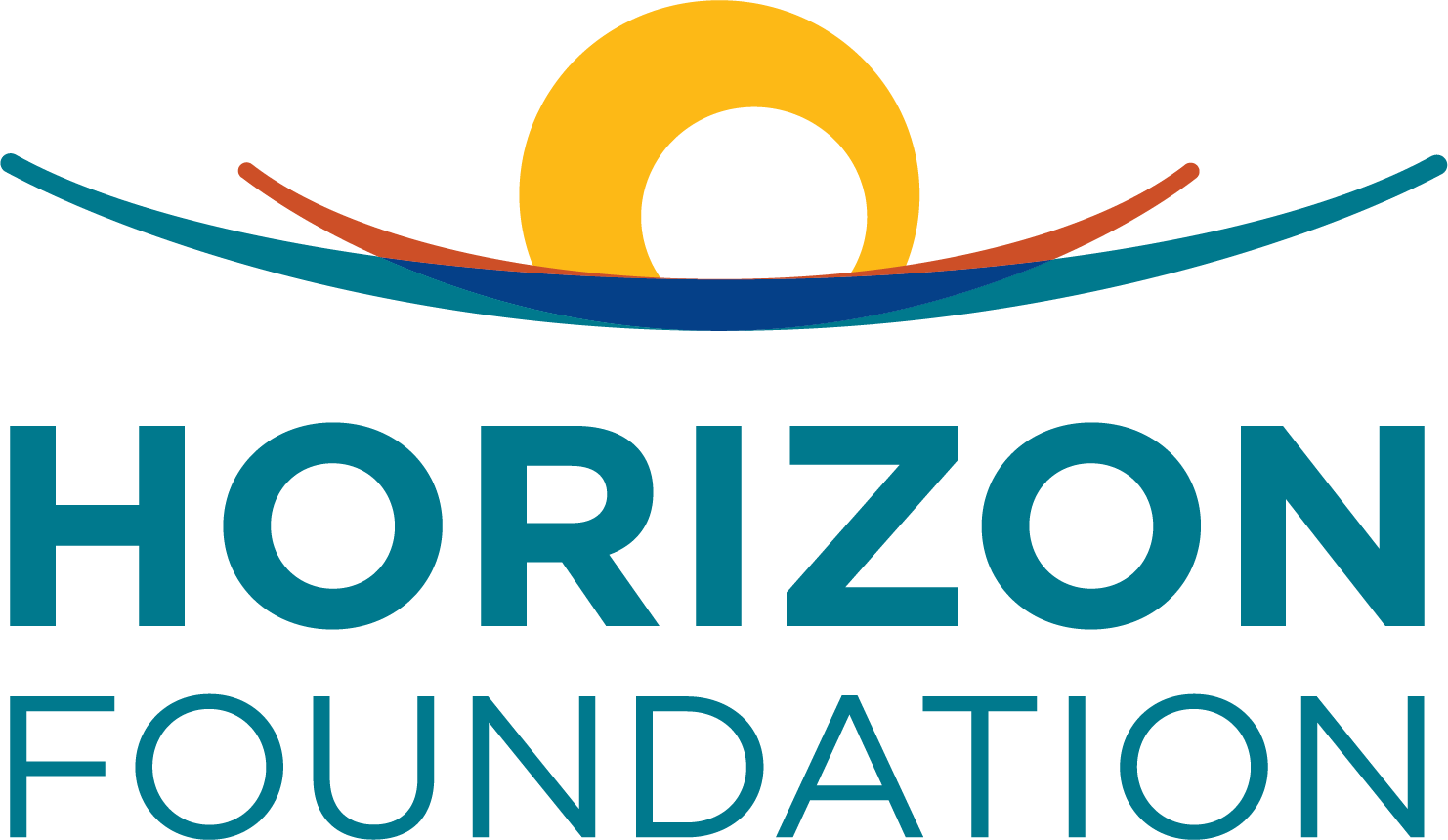Grantee spotlight: Handing over the mic with CASA
Trent Leon-Lierman has been working in the immigrants’ rights movement since 2004, including as a volunteer in Arizona that provided food and water to migrants crossing the border. Over the years, he’s seen many injustices, and the far too common disconnect between the fight for equity and the systems that stand in its way.
“At the end of the day, it’s always the problem of ‘othering,’” he says. “So often we are not seeing immigrants as people first. We’re not seeing them as deserving of equity.”
Nowhere is the concept of “othering” arguably more prevalent than the topic of immigration. Over the past 10-15 years in particular, immigration has been one of the most hotly contested issues at the national level, with many politicians commonly villainizing Black and Brown migrants to the U.S. and who was and was not “deserving” to be here. CASA, a prominent immigrants’ rights and services organization, was in the heat of the fight in the last battle at the federal level for comprehensive immigration reform – which would have included a pathway to citizenship for millions – around 2011. That effort ultimately failed, and CASA was forced to pivot in new ways to try and fight for policy change to improve the lives of its members, all while watching the harmful rhetoric about immigrants continue.
“Our mission is our community members,” Leon-Lierman says. “We work to help Black and Brown immigrants realize their own liberation through services, advocacy and organizing to improve their lives collectively.”
With change at the federal level hitting a wall, CASA has since evolved to advocating for policy change at the state and local level. As the current Maryland Organizing Director, Leon-Lierman and his team work to lift up community members’ voices to build equity in systems that have not traditionally included them and to pass local and state legislation that will benefit them. Overall, CASA’s members generally have been living in the U.S. for decades but have no path to citizenship – they have lives here, have had children here, but can’t get the benefits afforded to U.S. citizens.
With the prospects for immigration reform looking slim for the foreseeable future, health and access to health care have become CASA members’ number one priority. Non-citizens are much more likely than citizens to be uninsured, as undocumented immigrants are not eligible to enroll in Medicaid or CHIP or buy plans through the Affordable Care Act.[i] As a result, non-citizens are much more likely to have no usual source of health care, and are often forced to go to the hospital – the most expensive place to get care – when problems arise.
Thus, a partnership between CASA and the Horizon Foundation was born.
“Horizon has a similar vision around health and social equity as CASA,” says Leon-Lierman. “We share the belief that those who are most impacted should be the voices for the change that we wish to see.”
For the past several years, CASA has been a key partner with the Foundation to advance health equity legislation in Howard County and at the state level. So far, most of the focus has been on maternal and child health – an area where racial disparities are painfully stark.
Over a decade ago, cuts to Howard County’s public health budget shut down the county’s maternity clinic, run at that time by the health department. Though the Foundation funded several pilots to provide prenatal care to these moms, there was never sustained government funding to support a program that would see ALL women, including those who were undocumented. As a result, many pregnant women seeking care would have to travel outside of Howard County in order to get basic prenatal services. This is more than just inconvenient – it can be impossible for many women who do not have access to transportation or lack the economic means to take time away from their jobs and families to travel long distances to crucial medical appointments. Far too often, they do not get the maternity care they need until very late in their pregnancy, or sometimes not at all.
This lack of prenatal and maternity care in Howard County disproportionately harms uninsured women, undocumented immigrants and women of color, leading to poor birth outcomes, including premature birth, low birth weight and even infant or maternal death. Women of color, especially Black women, are also more likely to face childbirth-related complications, including higher rates of postpartum depression.[ii]
According to Maryland Vital Statistics, in 2019, Black mothers living in Howard County were 63% more likely to have an infant born premature and 54% more likely to have an infant with low birth weight than white mothers – key factors that contribute to infant death. In the same year, almost 12% of Hispanic mothers and 8% of Black mothers in the county received late or no prenatal care – in the case of Hispanic mothers, that’s more than four times the percentage of White mothers.
Working with a coalition of partners that included Chase Brexton, Alianza Latina, One World Healthcare, Onyx Medical Society, the African American Community Roundtable and others, CASA organized its members to advocate for a Maternity Partnership Program, modeled after a similar program in Montgomery County that works with area hospitals to provide prenatal care to uninsured pregnant women. Thanks in no small measure to the young mothers who testified and shared their own struggles to receive pre- and postnatal care, Howard County has provided funding to establish this program for the past two years. At the same time, CASA and its members worked at the state level to pass the Healthy Babies Equity Act, which provides pre- and postnatal care for uninsured pregnant women, regardless of immigration status, through Medicaid until four months after giving birth.
“Mothers are now able to get care that they couldn’t before,” says Leon-Lierman. “People won’t be so scared to go to the doctor because of cost or distance as well. This is a step to show that these policies matter. Taking care of people’s health is not only the right thing to do but it also improves health outcomes.”
CASA and other partners continue to work to fully implement and expand these programs until no barriers stand in the way of mothers getting the care they need to deliver and raise their babies. Regardless of how one might feel about immigration reform, helping babies be born healthy should be a goal everyone can share.
What’s more, the fight to expand access to affordable health insurance for ALL people is far from over. This past legislative session, CASA and the Horizon Foundation were among the many supporters of the Access to Care Act, which would have expanded access to the state’s health insurance marketplace to all Marylanders regardless of immigration status. The bill ultimately passed the House of Delegates but failed to gain traction in the Senate.
According to Leon-Lierman, one of the arguments some legislators made against the Access to Care Act was that people could always buy insurance through private insurers. However, private insurance is enormously expensive, making it a wholly unrealistic option for most, if not all, of the population CASA serves.
CASA plans to continue its work on the Access to Care Act and to ensure that everyone, immigrants included, can get quality, affordable health care – and not have the hospital be their only option. Moreover, CASA is committed to working for systemic change that will build a truly equitable society, with their members and their stories at the heart of it all.
“One of my colleagues at CASA said it best,” said Leon-Lierman. “It’s not about being a voice for the voiceless – it’s handing them the damn mic.”
—
[i] Kaiser Family Foundation: https://www.kff.org/racial-equity-and-health-policy/fact-sheet/health-coverage-and-care-of-immigrants/
[ii] Healthline: https://www.healthline.com/health/pregnancy/how-to-support-black-mothers-and-parents-with-postpartum-depression#statistics

